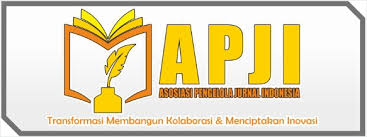Empowering Youth Through Creative Digital Content Workshops in Marginalized Areas
DOI:
https://doi.org/10.70610/iare.v3i1.808Keywords:
Creative Content, Digital Literacy, Empowerment, Marginalized Youth, Social EngagementAbstract
This community service initiative aimed to empower marginalized youth by enhancing their digital literacy and creative skills through workshops focused on digital content creation. The primary objective was to equip participants with the technical skills needed to produce digital media while fostering self-expression and social engagement. Using a Participatory Action Research (PAR) approach, the workshops involved hands-on training in video editing, podcasting, and social media management while encouraging collaboration and storytelling on local issues. The results indicated a significant improvement in technical skills and self-confidence among participants, with 85% reporting increased proficiency in content creation tools. Moreover, the workshops promoted a sense of community and empowerment, as youth collaborated on projects addressing social issues and showcased their work in a final exhibition. The findings highlighted the transformative power of creative digital education in marginalized communities, bridging the digital divide and offering youth a platform to assert their identities. Despite challenges such as unequal access to technology and varying initial skill levels, the initiative demonstrated the potential of digital content creation programs to foster empowerment, social cohesion, and critical engagement. The contributions of this initiative are significant in promoting inclusive digital literacy programs and offering a model for future community-driven digital education.
References
A. Nursalim, L. Judijanto, and A. Asfahani, “Educational Revolution through the Application of AI in the Digital Era,” J. Artif. Intell. Dev., vol. 1, no. 1, pp. 31–40, 2022.
A. Asrijal, K. Karyono, A. A. Seto, Z. H. Sain, and M. M. Maq, “Youth Organization Empowerment through Creative Entrepreneurship Business in the Village,” Amalee Indones. J. Community Res. Engagem., vol. 5, no. 1, pp. 115–128, 2024.
L. Stephenson, “Collective creativity and wellbeing dispositions: Children’s perceptions of learning through drama,” Think. Ski. Creat., vol. 47, no. November 2022, p. 101188, 2023, doi: 10.1016/j.tsc.2022.101188.
A. A. Okunade and A. R. Osmani, “Effects of life expectancy on economic growth: new results using the flexible Box–Cox power transformation model,” Appl. Econ. Lett., vol. 27, no. 20, pp. 1681–1684, 2020, doi: 10.1080/13504851.2020.1713976.
S. S. Eraku, M. K. Baruadi, S. P. D. Anantadjaya, S. Fadjarajani, U. Supriatna, and A. Arifin, “Digital Literacy and Educators of Islamic Education,” Edukasi Islam. J. Pendidik. Islam, vol. 10, no. 01, pp. 569–576, 2023.
R. Lee, K. Hoe Looi, M. Faulkner, and L. Neale, “The moderating influence of environment factors in an extended community of inquiry model of e-learning,” Asia Pacific J. Educ., vol. 41, no. 1, 2021, doi: 10.1080/02188791.2020.1758032.
A. Muhtarom, “Participation Action Research dalam Membangun Kesadaran Pendidikan Anak di Lingkungan Perkampungan Transisi Kota,” Dimas J. Pemikir. Agama untuk Pemberdaya., vol. 18, no. 2, p. 259, 2019, doi: 10.21580/dms.2018.182.3261.
H. Kuswoyo, E. T. S. Sujatna, A. Rido, and L. M. Indrayani, “Theme Choice and Thematic Progression of Discussion Section in Engineering English Lectures,” in Proceedings of the 4th International Conference on Learning Innovation and Quality Education, 2020, pp. 1–10.
H. Yogia, P. Uly, L. Marten, and D. Ratu, “Make Learning Fun for Elementary School Grade 1 Students with Kahoot Games,” vol. 2, no. 1, pp. 102–109, 2023.
D. F. Vears and L. Gillam, “Inductive content analysis: A guide for beginning qualitative researchers,” Focus Heal. Prof. Educ. A Multi-disciplinary J., vol. 23, no. 1, pp. 111–127, 2022.
S. N. Rizki and N. Wahdah, “Training of the Art Reading Al Qur’an of Sidomulyo Community at Tumbang Tahai Village,” Int. J. Community Engagem. Payungi, vol. 2, no. 1, pp. 43–50, 2022.
M. Rahmah and N. Barizah, “Halal Certification of Patented Medicines in Indonesia in the Digital Age" A Panacea Pain?,” Int. J. Syst. Rev. Pharm., vol. 11, no. 12, pp. 210–217, 2020.
S. Suryanti, C. Rofiah, A. Asfahani, A. H. Cindy, and H. Palayukan, “OPTIMIZATION COMMUNITY PROGRESS THROUGH EMPOWERMENT IN THE FIELD OF SUSTAINABLE EDUCATION,” Community Dev. J. J. Pengabdi. Masy., vol. 5, no. 2, pp. 3640–3646, 2024.
K. Dessy, M. Zaenal, and A. S. I. Nurchotimah, “Tren Konten Dakwah Digital Oleh Content Creator Milenial Melalui Media Sosial Tiktok di Era Pandemi COVID-19,” ORASI J. Dakwah dan Komun., vol. 12, no. 1, pp. 97–113, 2021.
R. D. Nopryana and I. Susilowati, “The Relation of Religion and Culture in the Review of Indonesian Islamic Community Development,” Int. J. Adv. Sci. Educ. Relig., vol. 5, no. 3, pp. 104–111, 2022.
P. A. Prabowo, B. Supriyono, I. Noor, and M. K. Muluk, “Special autonomy policy evaluation to improve community welfare in Papua province Indonesia,” Int. J. Excell. Gov., vol. 2, no. 1, pp. 24–40, Jan. 2021, doi: 10.1108/ijeg-06-2019-0011.
M. A. Nasution, Z. M. E. Siregar, and ..., “Strengthening Bumdes through Customer Satisfaction and Loyalty as the Defense of the Bumdes Business in Indonesia Post-Covid-19,” Budapest Int. Res. Critics Inst. Humanit. Soc. Sci., vol. 4, no. 3, pp. 3962–3970, 2021.
W. Matli and M. Ngoepe, “Capitalizing on digital literacy skills for capacity development of people who are not in education, employment or training in South Africa,” African J. Sci. Technol. Innov. Dev., vol. 12, no. 2, pp. 129–139, 2020.
R. Rusmulyani, “Technical Vocational Education and Training (TVET) Innovation Dengan Model Pelatihan Berbasis Kompetensi Dalam Pengembangan Soft-Skill Sumber Daya Manusia,” J. Inov. Penelit., vol. 1, no. 8, pp. 1495–1506, 2021.
M. N. Zainuddin, D. Mukhtar, N. A. Hasan, and M. H. Ali, “Entrepreneurial Passion Development: The Interplay between Heuristic Thinking and Pedagogical Experience during Entrepreneurial Learning Process,” J. Pengur., vol. 55, pp. 59–72, 2019.
S. Soliati, “Community empowerment in managing waste through takakura training,” J. Empower., vol. 8, no. 1, pp. 48–54, 2019.
M. Janssen, R. Walravens, E. Thibaut, J. Scheerder, A. Brombacher, and S. Vos, “Understanding different types of recreational runners and how they use running-related technology,” Int. J. Environ. Res. Public Health, vol. 17, no. 7, p. 2276, 2020.
E. Solina, N. Rahmawati, and T. S. Igiasi, “Children’s Rights In Public Spaces: Study Of Laman Boenda Park In Tanjungpinang City,” Amalee Indones. J. Community Res. Engagem., vol. 3, no. 2, pp. 467–477, 2022.
Bawuro AA, “Bioaccumulation of heavy metals in some tissues of fish in lake geriyo, adamawa, nigeria,” Journal of environmental and public health.
G. García-Peñalvo, “Future Trends in the Design Strategies and Technological Affordances of E-Learning,” Springer, pp. 1–23, 2016, doi: 10.1007/978-3-319-17727-4.
W. Ainis Rohtih, S. Saifuddin Hamzah, and L. Sakdiyah, “Enhancing Womenpreneurs’ Digital Marketing Skills in Purutrejo Village, Purworejo District, Pasuruan,” Engagem. J. Pengabdi. Kpd. Masy., vol. 7, no. 2, pp. 534–550, 2023, doi: 10.29062/engagement.v7i2.1547.
D. Sjödin, V. Parida, M. Jovanovic, and I. Visnjic, “Value creation and value capture alignment in business model innovation: A process view on outcome‐based business models,” J. Prod. Innov. Manag., vol. 37, no. 2, pp. 158–183, 2020.
M. L. Mogale and K. S. Malatji, “Progressed Learners’ Participation in Developing Curriculum Support Programmes: A Critical Pedagogy Approach,” E-Journal Humanit. Arts Soc. Sci., no. October, pp. 475–487, 2022, doi: 10.38159/ehass.20223105.
M. Amri, A. Asfahani, K. Kadeni, M. Arif, and F. S. Jamin, “COMMUNITY EMPOWERMENT IN THE FIELDS OF EDUCATION ENTREPRENEURSHIP AND THE ENVIRONMENT IN THE VILLAGE,” Community Dev. J. J. Pengabdi. Masy., vol. 5, no. 2, pp. 3704–3712, 2024.
D. Ortiz and K. Huber-Heim, “From information to empowerment: Teaching sustainable business development by enabling an experiential and participatory problem-solving process in the classroom,” Int. J. Manag. Educ., vol. 15, no. 2, pp. 318–331, 2017.
L. Andresen, D. Boud, and R. Cohen, “Experience-based learning,” in Understanding adult education and training, Routledge, 2020, pp. 225–239.
R. Ramlah, N. Riana, and A. P. Abadi, “Fun Math Learning For Elementary School Students Through Interactive Puzzle Media,” SJME (Supremum J. Math. Educ., vol. 6, no. 1, pp. 25–34, 2022, doi: 10.35706/sjme.v6i1.5775.
A. P. Nugraha, C. Wibisono, B. Satriawan, Indrayani, Mulyadi, and Damsar, “The Influence Of Transformational Leadership, Job Crafting, Job Satisfaction, And Self-Efficacy On Job Performance Through Work Engagement Of State Civil Apparatus As An Intervening Variable In The Digital Era Of Cases In The Local Government Of Karimun R,” Cent. Eur. Manag. J., vol. 30, no. 3, pp. 2336–2693, 2022.
Downloads
Published
How to Cite
Issue
Section
License
Copyright (c) 2025 Solly Matshonisa Seeletse

This work is licensed under a Creative Commons Attribution-NonCommercial-ShareAlike 4.0 International License.
License: CC BY-SA 4.0 (Creative Commons Attribution-ShareAlike 4.0 International License)






 MoU
MoU 


